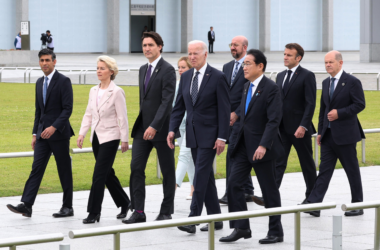In a move stirring controversy and raising questions about freedom of expression and political engagement, ministers in the United Kingdom are deliberating over a potential ban on Members of Parliament (MPs) from associating with pro-Palestine and climate protest campaigners. The proposal, if implemented, could signal a significant shift in the landscape of political discourse, prompting concerns about the stifling of dissent and the curtailment of democratic rights.
The debate surrounding the proposed ban stems from growing tensions between the government and advocacy groups championing causes related to Palestine and climate change. Proponents of the measure argue that restricting MPs’ interactions with such groups is necessary to safeguard national security interests and prevent the spread of extremist ideologies.
However, critics view the potential ban as an egregious infringement on fundamental rights, including the freedom of speech and the right to peaceful assembly. They argue that engaging with constituents and civil society organizations, even those with contentious views, is an essential aspect of democratic governance, enabling lawmakers to better understand the concerns and aspirations of the people they represent.
At the heart of the controversy lies the UK government’s stance on contentious geopolitical issues, particularly its approach to the Israeli-Palestinian conflict and climate change. Pro-Palestine activists have long called for greater international solidarity with the Palestinian people and have staged protests against perceived injustices, including Israeli occupation and settlement expansion. Similarly, climate protesters have mobilized to demand urgent action to address the existential threat posed by climate change, often employing disruptive tactics to draw attention to their cause.
The government’s consideration of a ban on MPs’ engagement with these advocacy groups reflects broader debates over the boundaries of permissible dissent and the role of the state in regulating political discourse. While democratic societies value pluralism and the exchange of diverse viewpoints, they also grapple with the challenges of balancing competing interests and maintaining social cohesion in an increasingly polarized world.
If implemented, the ban could have far-reaching implications for the relationship between elected officials and their constituents, potentially eroding trust and exacerbating feelings of marginalization among certain segments of society. Moreover, it could set a troubling precedent for the restriction of political freedoms and civil liberties, emboldening authoritarian tendencies and undermining the democratic fabric of the nation.
As the debate over the proposed ban intensifies, voices from across the political spectrum have weighed in, offering divergent perspectives on the issue. Some argue that restricting MPs’ interactions with certain advocacy groups is necessary to safeguard national security and combat extremism, while others contend that such measures constitute an unacceptable infringement on democratic rights and freedoms.
In the coming weeks, the UK government will face mounting pressure to justify its position on the proposed ban and address concerns about its potential implications for democracy and political participation. As the nation grapples with complex challenges at home and abroad, the imperative of upholding democratic principles and respecting the rights of all citizens remains paramount.








